 W
WField Marshal Jeffery Amherst, 1st Baron Amherst, was a British Army officer and Commander-in-Chief of the Forces in the British Army. Amherst is credited as the architect of Britain's successful campaign to conquer the territory of New France during the Seven Years' War. Under his command, British forces captured the cities of Louisbourg, Quebec City and Montreal, as well as several major fortresses. He was also the first British Governor General in the territories that eventually became Canada. Numerous places and streets are named for him, in both Canada and the United States.
 W
WRobert Bertie, 4th Duke of Ancaster and Kesteven, PC, styled Lord Robert Bertie until 1758 and Marquess of Lindsey between 1758 and 1778, was a British peer. He was born in Grimsthorpe, the second son of the General Peregrine Bertie, 3rd Duke of Ancaster and Kesteven and Mary Panton
 W
WLieutenant-General Sir Desmond Francis Anderson was a senior British Army officer in both the First and the Second World Wars.
 W
WSir Robert William Aske, 1st Baronet JP was a barrister and Liberal Party politician in the United Kingdom.
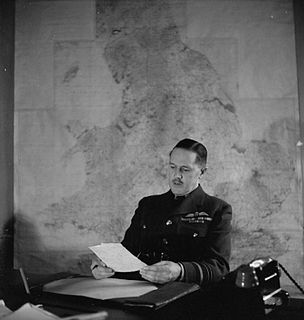 W
WAir Marshal Sir John Stanley Travers Bradley, was a senior Royal Air Force officer who became Air Officer Commanding-in-Chief RAF Maintenance Command.
 W
WLieutenant Colonel Daniel Burges, VC, DSO was an English recipient of the Victoria Cross, the highest and most prestigious award for gallantry in the face of the enemy that can be awarded to British and Commonwealth forces.
 W
WColonel William St. Lucien Chase VC CB was a recipient of the Victoria Cross, the highest and most prestigious award for gallantry in the face of the enemy that can be awarded to British and Commonwealth forces.
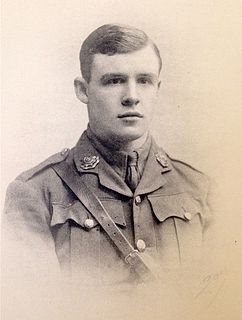 W
WArthur "Mud" James Dingle was a rugby union centre and wing, who won three caps for England, and played for County Durham, Hartlepool Rovers and Oxford University.
 W
WGeneral Sir Howard Douglas, 3rd Baronet was a British military officer born in Gosport, England, the younger son of Admiral Sir Charles Douglas, and a descendant of the Earls of Morton. He was an English army general, author, colonial administrator and Member of Parliament for Liverpool.
 W
WGeneral Sir William Fawcett KB (1727–1804) was an Adjutant-General to the Forces.
 W
WJohn Hamilton Gray was Premier of Prince Edward Island from 1863 – 1865 and one of the Fathers of Confederation.
 W
WGeneral Sir Bruce Meade Hamilton, was a British Army General during the Second Boer War and the First World War.
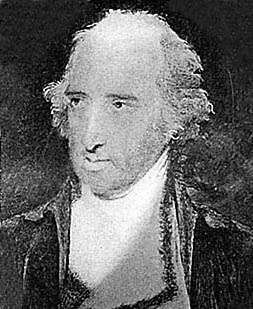 W
WHenry Hamilton was an Anglo-Irish military officer and later government official of the British Empire. He served in North America as Lieutenant Governor of the Province of Quebec and later as Deputy Governor after the Revolutionary War. He later served as Governor of Bermuda and lastly, as Governor of Dominica, where he died in office.
General James Inglis Hamilton was a Scottish soldier. He enlisted in the British Army in 1755 and commanded several regiments. He was the only colonel of the 113th Regiment of Foot. During the Seven Years' War (1756–1763), Hamilton fought in the Siege of Fort St Philip, the Raid on St Malo, and the Capture of Belle Île.
 W
WSir Frederick Hankey was a British army officer, diplomat and colonial administrator. He was awarded the Grand Cross of the Order of St Michael and St George in 1833 by William IV. He served as a diplomat on Corfu and Malta.
 W
WJohn Harrison was a professional rugby league footballer who played for Hull FC. He later became a British Army officer, and was the posthumous recipient of the Victoria Cross during the First World War, the highest and most prestigious award for gallantry in the face of the enemy that can be awarded to British and Commonwealth forces.
 W
WLieutenant General Sir John Ledlie Inglis Hawkesworth, was a senior British Army officer who served during both World Wars. During the Second World War he commanded the 4th Division during the Tunisian Campaign in early 1943, later commanding the 46th Division throughout most of the Italian Campaign and, finally, X Corps in Greece, before suffering from a fatal heart attack in June 1945.
 W
WMajor General Sir Noel Galway Holmes KBE CB MC was a senior British Army officer during the Second World War.
 W
WLieutenant-General Emanuel Scrope Howe, of The Great Lodge, Alice Holt Forest, Hampshire, was an English diplomat, army officer, and Member of Parliament.
 W
WLieutenant General John Huske was a British military officer, whose active service began in 1707 during the War of the Spanish Succession, and ended in 1748.
 W
WMajor-General Francis Seymour Inglefield (1855–1930) was a British Army officer.
 W
WWilliam Mabane, 1st Baron Mabane, known as Sir William Mabane between 1954 and 1962, was a British businessman and Liberal/National Liberal politician.
 W
WSir William Montagu Scott McMurdo was a British army officer who rose to the rank of general. He saw active service in India, helped to run a military railway in the Crimean War and then managed various groups of volunteers working with the army. He was eventually knighted.
 W
WMajor General Sir Charles John Melliss, was a British Army officer of the late 19th and early 20th centuries and a recipient of the Victoria Cross, the highest award for gallantry in the face of the enemy that can be awarded to British and Commonwealth forces. A staff officer in the Mesopotamian Campaign of the First World War, he was captured after the Siege of Kut.
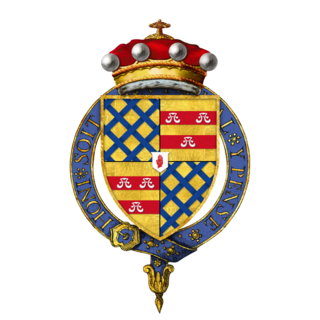 W
WColonel Michael Guy Percival Willoughby, 11th Baron Middleton, was a British peer and soldier.
 W
WGeorge Montagu was an English army officer and naturalist. He was known for his pioneering Ornithological Dictionary of 1802, which for the first time accurately defined the status of Britain's birds. He is remembered today for species such as the Montagu's harrier, named for him.
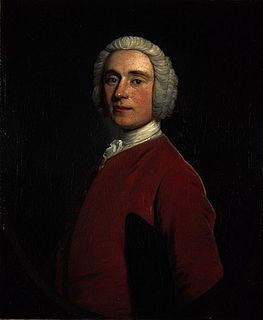 W
WGeneral James Murray was a Scottish army officer, whose lengthy career included service as colonial administrator and governor of the Province of Quebec and later as Governor of Minorca from 1778 to 1782. His term in Quebec was notably successful, and marked with excellent relationships with the conquered French-Canadians, who were reassured of their traditional rights and customs.
 W
WJohn Baptist Lucius Noel was a British mountaineer and filmmaker best known for his film of the 1924 Mount Everest expedition. His father, Col. Edward Noel (1852–1917), was the younger son of Charles Noel, 2nd Earl of Gainsborough. Born in Newton Abbot, Devon, England, Noel was educated in Switzerland, where he fell in love with the mountains, and at the Royal Military Academy Sandhurst. He was baptised Baptist Lucius and added the name John by deed poll in 1908. He was commissioned into the East Yorkshire Regiment in 1909 and posted to India.
 W
WCharles Henry Wellesley Wilson, 2nd Baron Nunburnholme, CB, DSO,, was a British peer, and one of the heirs to the Thomas Wilson Sons & Co., a Hull-based shipping company that built a near-monopoly over affordable travel packages from Scandinavia and the Baltic. He was an officer in the Volunteers and saw active service in the Second Boer War and World War I. During the later war he was distinguished for the number of new units that he recruited for the war effort, notably the 'Hull Pals'.
 W
WGeneral Robert Prescott was a British military officer and colonial administrator. During a military career which spanned over fifty years, he participated in the Seven Years' War, the French and Indian War, and the American Revolutionary War, including key engagements such as the Montreal Campaign. He later became the Governor of Martinique and then, in 1796, Governor General of The Canadas, and the British Army's Commander-in-Chief for North America. He was recalled to England in 1799 after conflict with the Catholic Church and disputes with Anglo-Canadian colonial elites over the distribution of land in the colonies. He continued to hold his position until 1807, with his lieutenant governors acting in his absence. He died in 1815 after unsuccessful attempts to clear his name.
 W
WMajor General William Havelock Chaplin Ramsden, was a senior British Army officer, who is most notable for commanding the 50th (Northumbrian) Infantry Division during the Second World War.
 W
WGeneral Sir Phineas Riall, KCH was the British general who succeeded John Vincent as commanding officer of the Niagara Peninsula in Upper Canada during the War of 1812. In 1816, he was appointed Governor of Grenada.
 W
WGeneral Algernon Seymour, 7th Duke of Somerset, styled Earl of Hertford until 1748, of Petworth House in Sussex, was a British Army officer and Whig politician who sat in the House of Commons from 1708 until 1722 when he was raised to the House of Lords as Baron Percy.
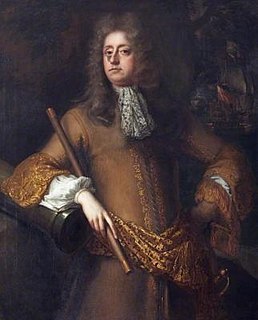 W
WAdmiral Arthur Herbert, 1st Earl of Torrington was an English admiral and politician. Dismissed by King James II in 1688 for refusing to vote to repeal the Test Act, which prevented Roman Catholics from holding public office, he brought the Invitation to William to the Prince of Orange at The Hague, disguised as a simple sailor. As a reward he was made commander of William's invasion fleet which landed at Torbay in Devon on 5 November 1688 thus initiating the Glorious Revolution.
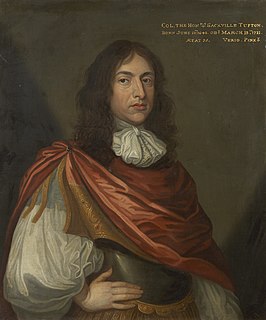 W
WColonel Sackville Tufton was the son of John Tufton, 2nd Earl of Thanet and his second wife Margaret Sackville. He married Elizabeth, daughter of Ralph Wilbraham of Newbottle, Northumberland. They had twelve children:John Tufton Sackville Tufton, 7th Earl of Thanet (1688–1753) John Tufton Wilbraham Tufton Thomas Tufton Richard Tufton Catharine Tufton Elizabeth Tufton Margaret Tufton Christian Tufton Mary Tufton Elizabeth Tufton
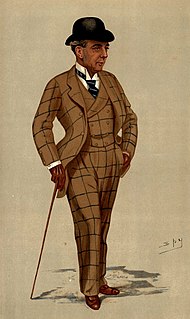 W
WThomas Anthony Hwfa Williams (1849/50–1926) was a British Army officer and racecourse manager. A figure of the Marlborough House Set, he was a close associate of the future Edward VII of the United Kingdom, and his wife Mrs. Hwfa Williams a leader of the fashionable world.